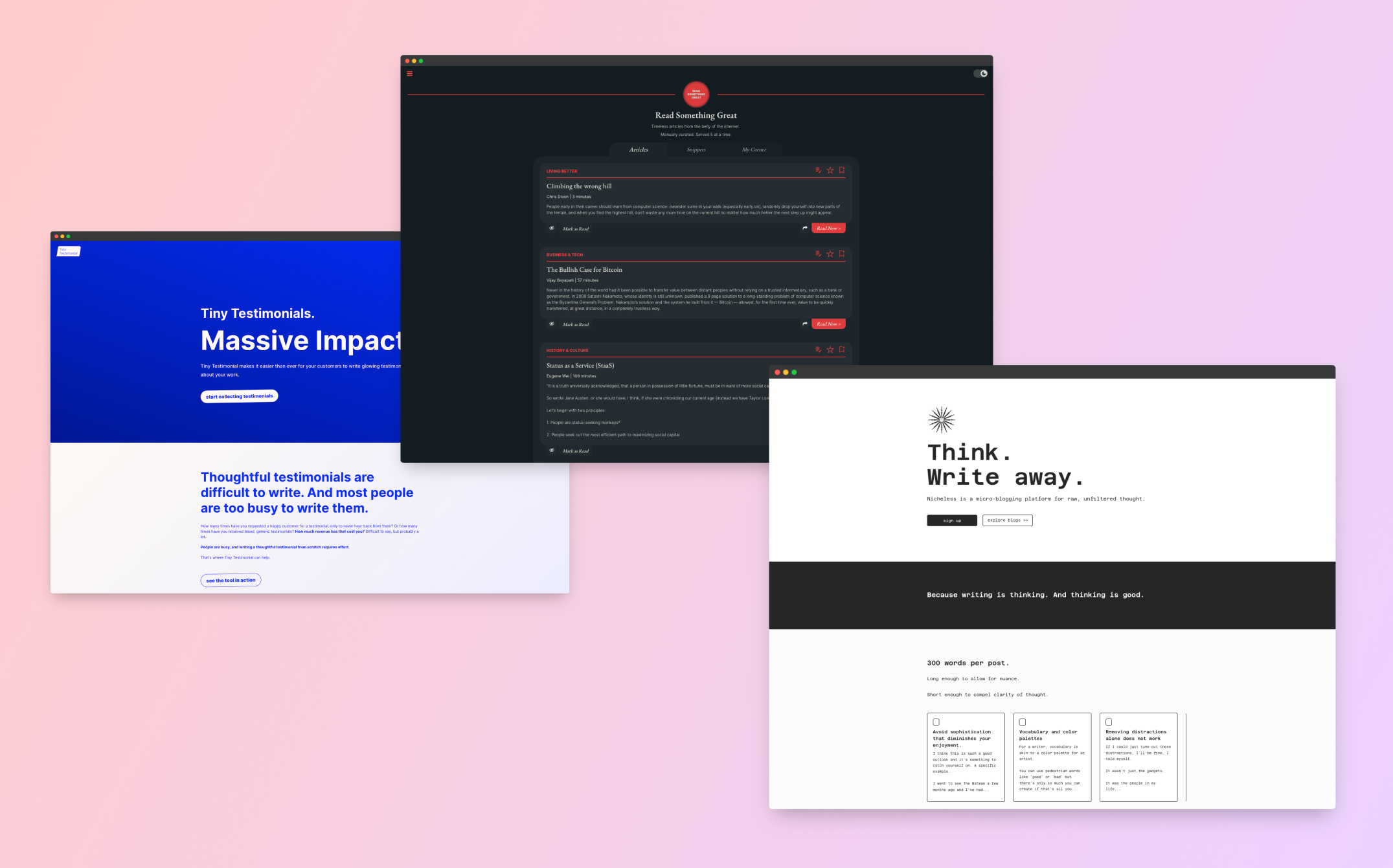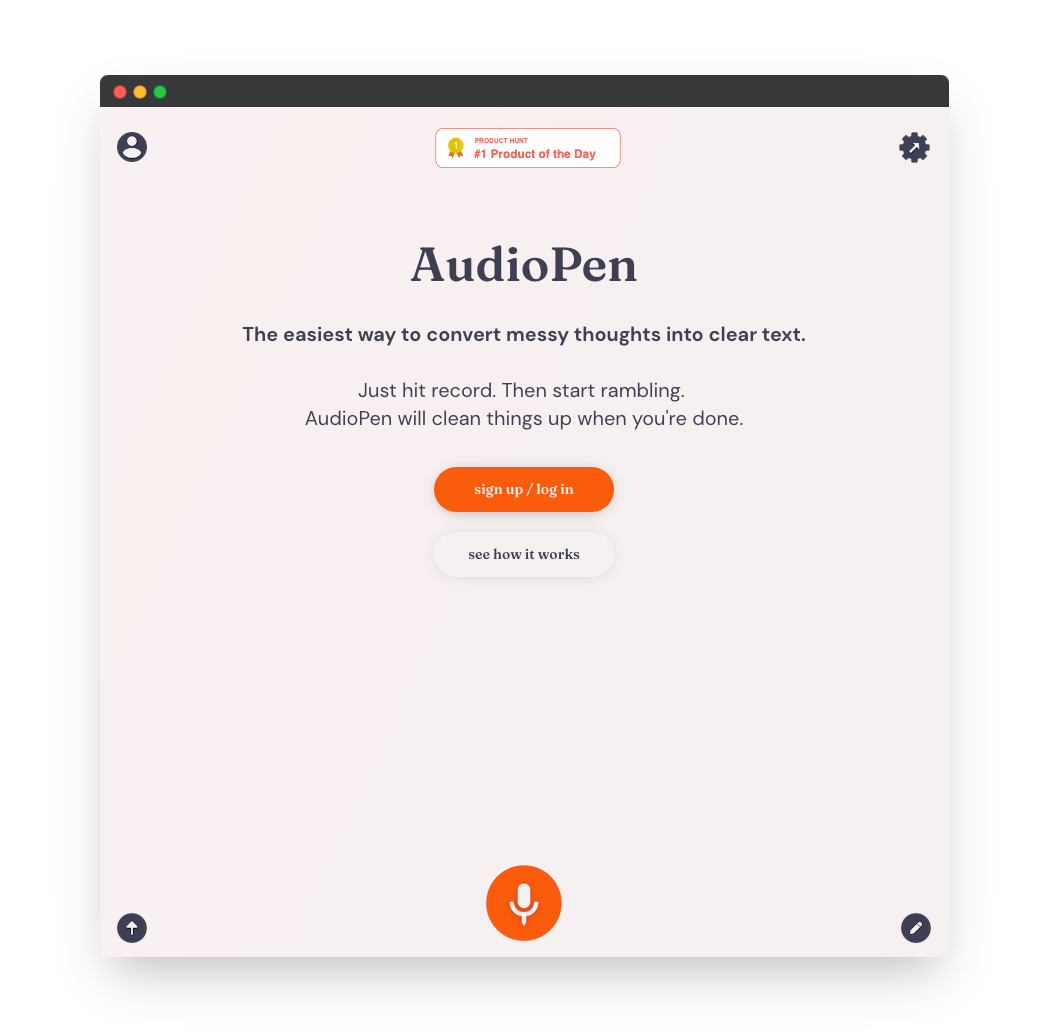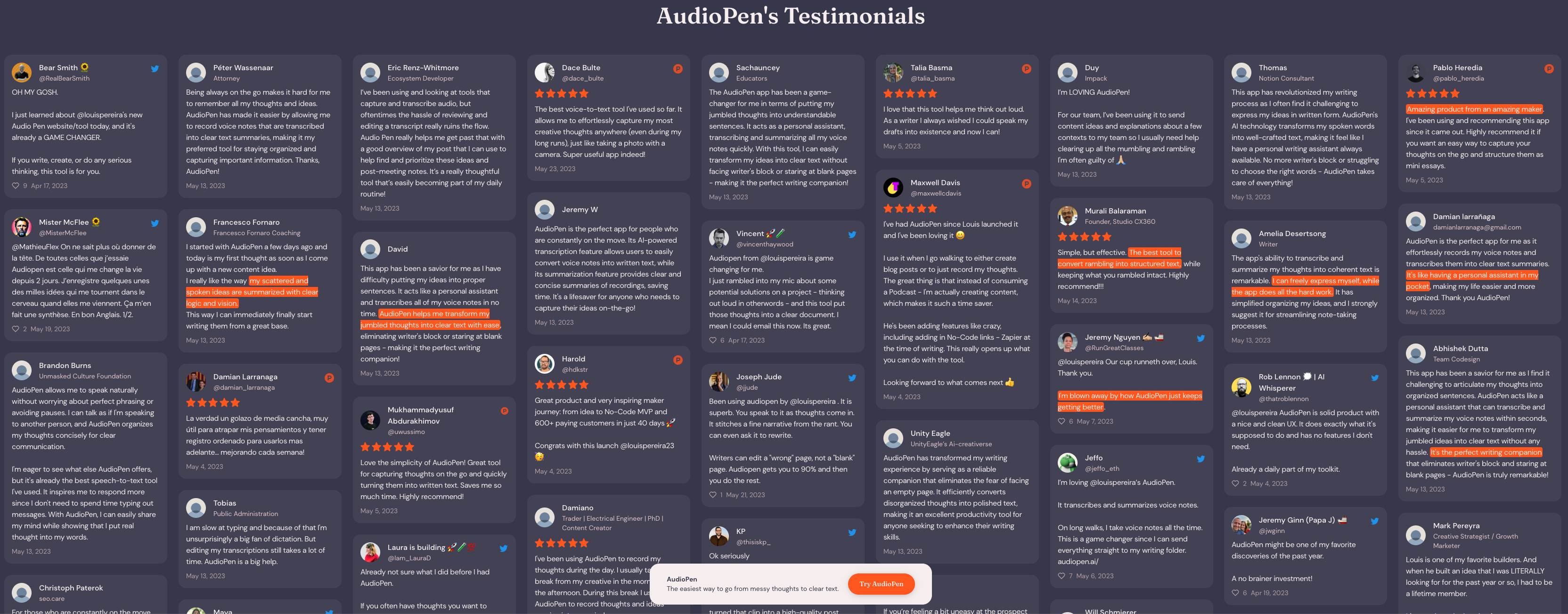The half-day build that turned into 1,000 paying customers
Louis Pereira built AudioPen, a voice recorder that transcribes and summarizes audio into easy-to-read text, during a half-day hackathon. Despite being an accidental idea, the product took off and gained over 1,000 paying users within two months of launch. In this interview, Louis speaks about his journey in the no-code space, his previous projects, and shares advice for those hoping to launch successful products using no-code tools.
Briefly introduce yourself
I’m Louis, a part time indie hacker from Goa India.
I live a dual life.
During the day, I work with my family to run a traditional, offline first business. At night, I’m a creator on the internet where I build web apps and publish the occasional article.
I’ve been dabbling in the NoCode space for a while, and fell in love with Bubble in 2021. Haven’t looked back since. Currently, I’m playing around with AI (as is pretty much everyone else) and trying to figure out how to use it to build things that are useful.
Describe your career journey prior to discovering no-code
I’m completely non technical. I studied Economics in college. Then worked in consulting. Then started a company with a few friends and ran it for a couple of years. Then moved back home to work with the family business that operates 100% in the offline world.
I just enjoy building things, and I am quite impatient. Building things on the internet without code is the most frictionless way that I can make stuff, and I love it.
Do you use your no-code skills in your family’s business?
Not exactly. I tried building side businesses with NoCode within that business that would complement the main business, but all the experiments failed.
How did you discover no-code?
I’ve been using no-code tools since 2015. Not because I liked no-code, but because I failed to teach myself how to code. I used everything I could, and looking back, it’s nice to see how far the space has come. I don’t remember having an aha moment, but I do recall learning Bubble, seeing how powerful it was, and realising that I didn’t want to switch tools ever again.
What previous projects have you built with no-code and how did they go?
I’ve built more than I can remember. Easily more than 10. Most are dead.
Besides AudioPen, a few that survive to this day are:

What do you enjoy most about making products, what motivates you to keep building them?
I just love making stuff. Anything. I’d do it for free. I actually have been doing it for free (and sometimes less than free) for the past three years, until AudioPen.
Tell us about AudioPen and how it’s going
AudioPen is going much better than I expected it to, considering it was launched under 2 months ago. It currently has over 10,000 total registered users, with 4,000 daily visits on the site, and over 1,000 paying users.
Where did you get the idea for AudioPen?
AudioPen was an accident. I was just playing around, learning how to use OpenAI’s APIs. In the process, I built a barebones version of AudioPen as a tiny tool on my personal website. It was one among 3 other tiny tools I’d built that week.
The idea was simple – a voice recorder that listened to what you said, and then transcribed and summarized it in words that were easy to read and ready to share.
To my surprise (and luck), people seemed to really like AudioPen.
So I decided to build it as a standalone tool.
(Read Louis’ Twitter thread about the build here)
What was the “aha” moment when you realised it might take off?
I built the full version of the product during Half Day Build – a hackathon I organize every alternative month, where people attempt to go from idea to revenue within 12 hours.
When the product was almost ready, I asked for volunteers who wanted to test it before launch. When I gave these volunteers access, a bunch of them paid for full version of the product, even before the product was publicly launched. That’s when I figured there was something there.

Incredible! Did you integrate payments from the start? Or did they do it manually? Was monetising early something you learned from previous experiences?
I had a simple payment link in the app from day 1. Since I was building it during Half Day Build, I had to. The goal of that hackathon was to go from idea to revenue within 12 hours.
What are the best marketing things you’ve done for AudioPen?
I don’t have a marketing strategy. I just build stuff, and share things on Twitter. I share my thought process behind what I’m building, and even ask people for their opinions which I then incorporate into the product. That has worked quite well for AudioPen.
What does it feel like to launch a rocketship?
I don’t know if this is a rocketship, but it’s definitely more successful than anything else I’ve built before. Besides the lack of sleep that accompanies it, it feels great. I love getting messages from people who use it and reading about how it changed their lives. I made a massive testimonial page for the product, and I get such a dopamine rush each time I read it. I have no idea what I’ve done to deserve it, but I’m so, so grateful. I’m going to keep working to make sure I don’t let people down.

What’s different about AudioPen compared to your projects that didn’t go anywhere?
I have no clue. I think it just ended up being a solution to a problem that people didn’t realise they had. I can’t take credit for the idea, because AudioPen’s invention was purely accidental. I was just playing around, and I stumbled upon it.
What advice would you give to others who are hoping to launch successful products with no-code?
Just keep building. It’s unlikely that any of us are like Steve Jobs or Henry Ford. We can’t predict what customers want. But what we can do is build many things, extremely fast, for very little money, and see what sticks. When that happens, double down on it.
What’s your plan for the next 5 years?
No clue. I’m just taking it one day at a time right now!
—
Follow Louis on Twitter and check out AudioPen.